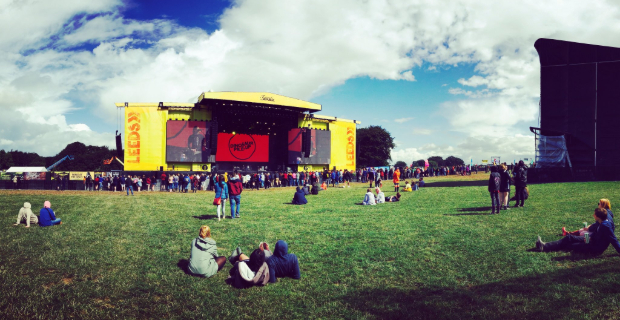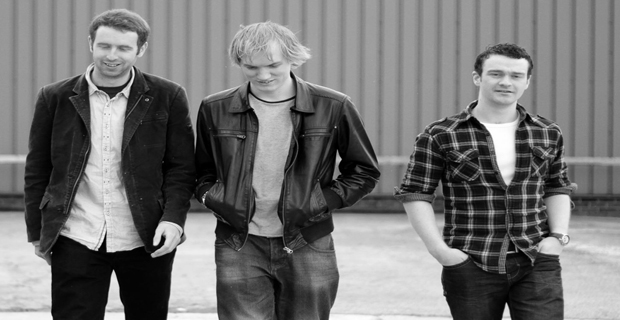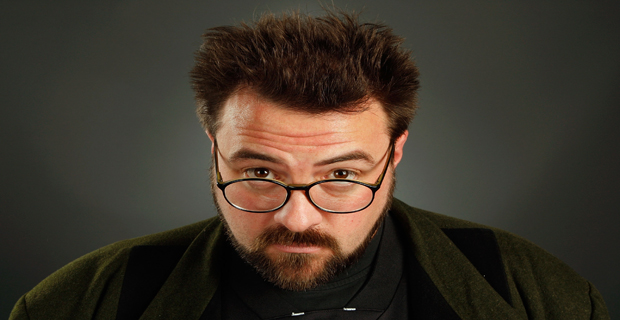The live music landscape has changed dramatically over the past 15 years and no UK event signals that change more strikingly than Leeds Festival. Taking place over the three-day August Bank Holiday weekend (five if you opt for an early-bird pass), this Northern sibling of the South’s Reading Festival has become a summertime staple for a certain generation. While many other UK festivals have encountered tough times over the past decade (with some disappearing completely), Leeds Festival has somehow endured – however its survival has not come without compromise. Attend Leeds Festival 2018 and you’ll find an event in the midst of an identity crisis, one that finds it battling for the approval of both legacy fans and new audiences with new musical tastes.
The end result is a mixed production that’s nothing if not eclectic. Leeds Festival has always been a coming-of-age festival for those on both sides of its many stages. For punters, it’s still very much a place to celebrate passing (or drink to forget failing) your GCSEs or A-Levels and for emerging bands its a place to cut your teeth and gain major exposure by sharing a bill with industry heavyweights. For these two demographics the festival is undoubtedly a success. Intoxicated teens embrace their first taste of independence while tomorrow’s big-names perform, in awe at the size of the crowds they’ve pulled. Enter the field expecting little more than this (plus a few loosely connected mainstream acts) – and you’ll likely leave happy. Find yourself outside these two niches – an old school rock act or a ticket holder over the age of 25, for example – and you might find yourself at odds with it all.
The Music
Despite the festival’s LADBible-esque crowd, the quality of its performances remain strong. Leeds locals Dinosaur Pile Up christened the main stage on Friday morning followed by a surprise appearance by rain, hail and a bout of gloomy weather. The sun was shining by the time Canadian fest-vets Billy Talent arrived shortly after but this ‘anything goes’ weather watch dominated most of the off-stage fun this year. This wasn’t necessarily a bad thing though, as it’s under the arena’s many tents where you’re likely to find your festival highlights. Gloucestershire’s Milk Teeth were welcomed with open arms, much like Southern rockers Black Foxxes – while back over at the Main Stage Kings of Leon rolled out the hits later that evening to a varied mix of weekend guests and day visitors.
Cut to Saturday and poet Neil Hilborn started things off early at the Alternative Stage, showcasing the festival’s ability to flit from mainstream stars to fresh talent. Day two felt all about the middleweights, with performances from the ethereal Gengahr, Blackpool songstress Rae Morris and acoustic-rock outfit The Front Bottoms drawing fans between tents all throughout the day. A surprise set from Sheffield’s Bring Me The Horizon pulled people away from the likes of alt-magician-comic Piff The Magic Dragon before powerhouse act Nothing But Thieves and festival favourites Wolf Alice battled for the evening slot against pop-punk giants and main-stage closers Fall Out Boy.
By day three the rain had returned but audiences refused to let it dampen their spirits. Instead, the wet weather added a level of pathetic fallacy to an emotional set from Linkin Park’s Mike Shinoda. With the wound of Chester Bennington’s death clearly still raw on both sides of the stage, a teary and empowered performance of noughties classic “In The End” emerged as a bittersweet festival highlight. Shinoda reappeared shortly after to perform “Faint” with Sum 41 before a typically oddball set from telly’s Harry Hill brightened moods back over at the Alternative Stage. Pharrell Williams’ N.E.R.D signalled the beginning of the end for this year’s festival and perhaps its most divisive night of music. With Panic! At The Disco wrapping their heavily produced set – complete with a cover of Queen’s “Bohemian Rhapsody” – fans split off towards either Pendulum and Papa Roach or Sunday headliner Kendrick Lamar – a migration that almost visually embodied the fractured nature of the festival’s entire curation.
So What You’re Saying Is…
It’s undeniable that Leeds Festival still serves a purpose with fans and musicians alike. For many, it acts as their first festival experience and a gateway to music they may never have experienced otherwise. For seasoned festival goers on the other hand, the event offers little in terms of consistency, aesthetics and an audience that older fans might want to endure a full drunken weekend with. While Leeds Festival may have began its life as a mecca for rock and alternative music lovers, it’s evolved into something much broader. The Leeds Festival of 2018 can probably be best described as a ‘zeitgeist event’ – forgoing its genre roots in favour of mass appeal.Can we really blame them for wanting to survive, though? Not really. With this new ethos, Leeds Festival will likely thrive in future years – however for audiences, it’ll remain a rites of passage experience that always looks better in rose-tinted hindsight.
Words by Simon Bland (@SiTweetsToo).
Keep up to date on all the latest Northern entertainment news by following us on Twitter and Facebook.




